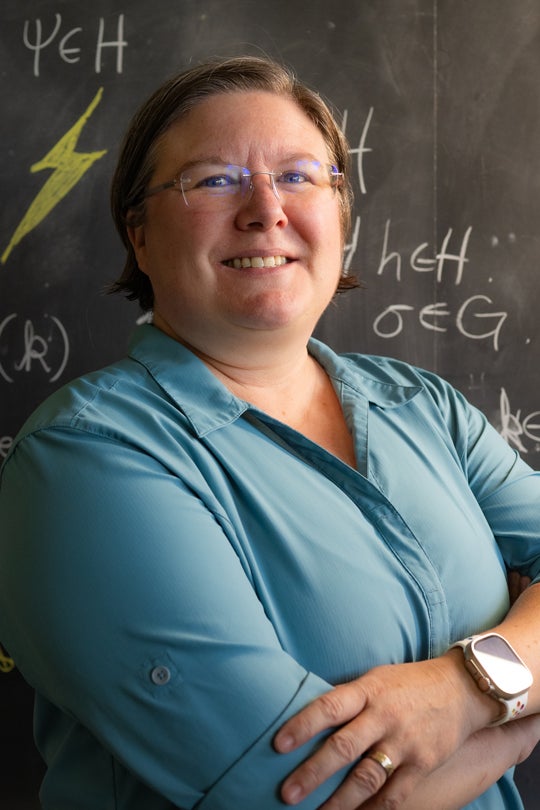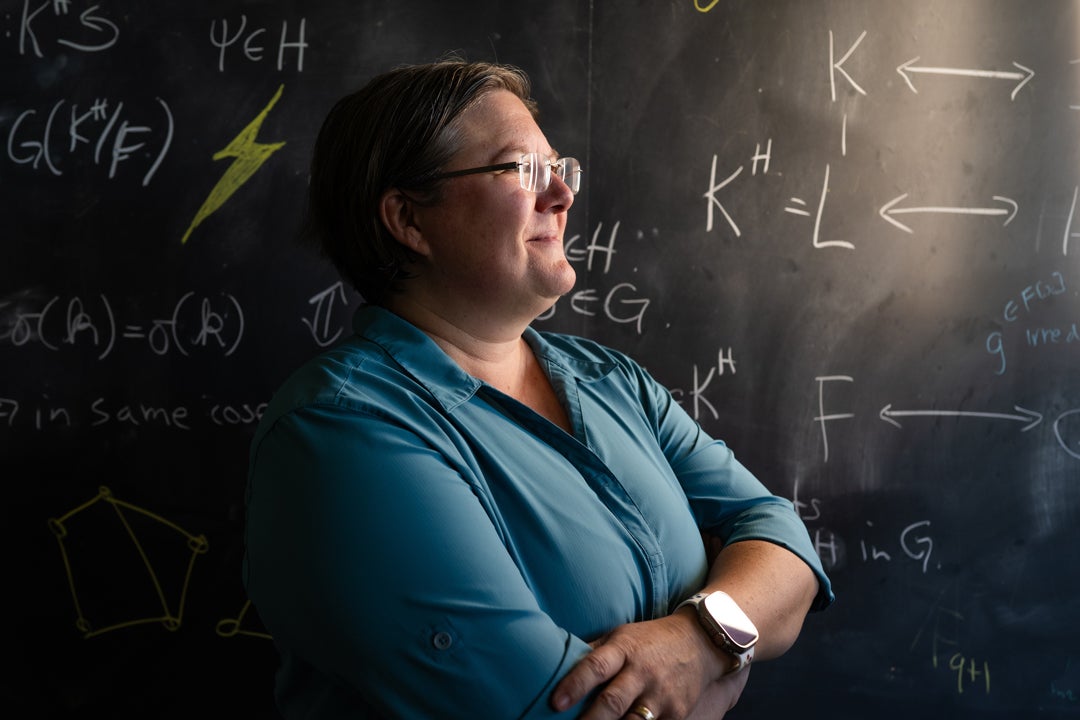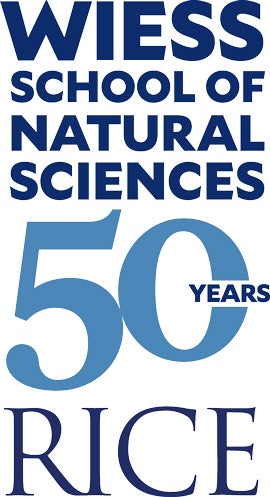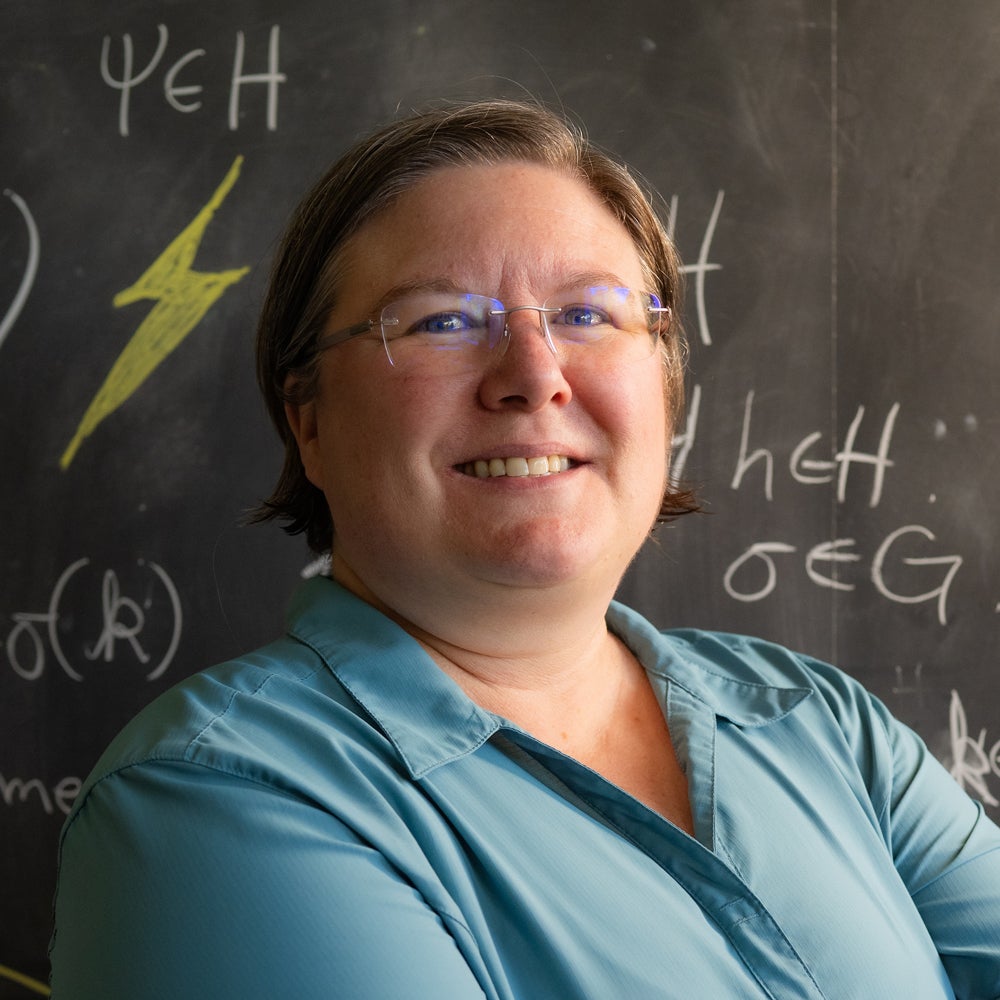
As a topologist, Shelly Harvey studies some of the most abstract shapes and spaces in existence. But when it comes to training students, Harvey focuses on something much more tangible: building a sense of belonging.
At Rice University, where they serve as a professor in the Department of Mathematics, Harvey leads the university’s NSF Research Training Groups in the Mathematical Sciences (RTG) program. Designed to strengthen the nation’s scientific competitiveness, the RTG supports collaborative research groups that prepare students and postdocs for careers in mathematics, whether in academia, industry or government.
For Harvey, that means not only training students to do mathematics, but also helping them feel connected. “We really wanted to focus on building communities,” they said. “Not just at Rice, but also in the larger mathematical community.”
At Rice, the program is centered on geometry and topology, but broadly defined. The primary research groups include low-dimensional geometry and topology, algebraic geometry and number theory, geometric analysis, and mathematical physics and dynamical systems. “There’s a lot of overlap between all the groups,” Harvey explained. “It creates a structure where people from all disciplines and levels are able to learn from one another.”
This community-based approach is especially important for postdocs, a group Harvey feels is often overlooked. “There's a huge amount of dropout at the postdoc level,” they said. “You come in, and suddenly you're teaching, doing research and also trying to apply for jobs — all within two years. It’s so easy to feel like you don’t belong.”

As a former NSF postdoc themselves, Harvey understands how much difference a supportive environment can make. “There were so many postdocs and junior faculty that there were always people to talk to,” they said. “That really changed how I thought about building a department.”
The RTG has also opened doors for undergraduates. “We realized that some students were working part-time jobs and missing out on research opportunities,” Harvey said. “So we created a program to pay them for doing research during the semester.” The work might not always lead to a paper, Harvey added, “but it gives them the experience of what research is like — and helps them figure out if it's something they want to pursue.”

In 2023, Harvey co-led a mentoring conference designed for junior faculty and late-stage postdocs. “At that point in your career, you’re trained to do research, but no one really teaches you how to advise students,” they said. The conference aimed to change that.
The RTG also encourages students to consider careers outside academia. “We’ve had a seminar series on business, industry and government,” Harvey said. “Some students feel like they can’t tell their advisor they want to go into industry.” Inviting Rice alumni who’ve followed those paths helps to normalize those choices. “You see people who were just like you,” Harvey said, “and that really helps.”
Among the most unique components of the RTG are the “log cabin conferences” — small, off-campus retreats planned and led by graduate students and postdocs. “They go to a secluded place where they can just think about math, learn about what other people are working on, and start collaborations,” Harvey said. “It gives them a chance to learn how to create and organize their own conferences, which will be really useful in the future.”
Harvey hopes the program will continue to grow, especially by deepening connections between research groups and expanding opportunities for undergraduates. But for now, they’re proud of the culture it has helped shape.
“I think the most important thing,” Harvey said, “is just helping people feel like they belong.”
- Niamh Ordner ’26

